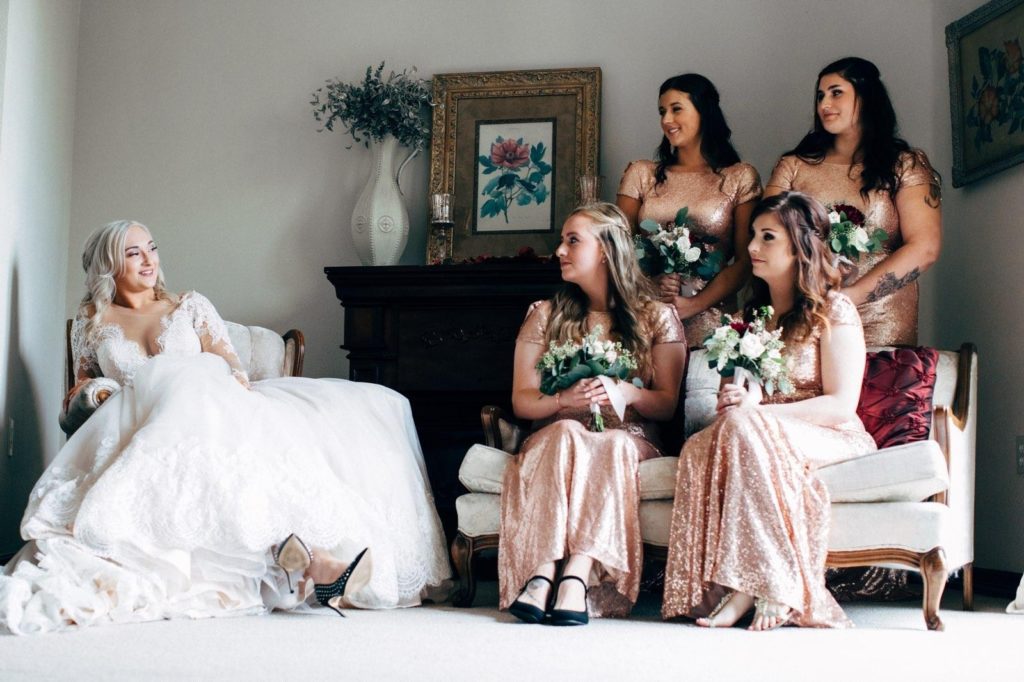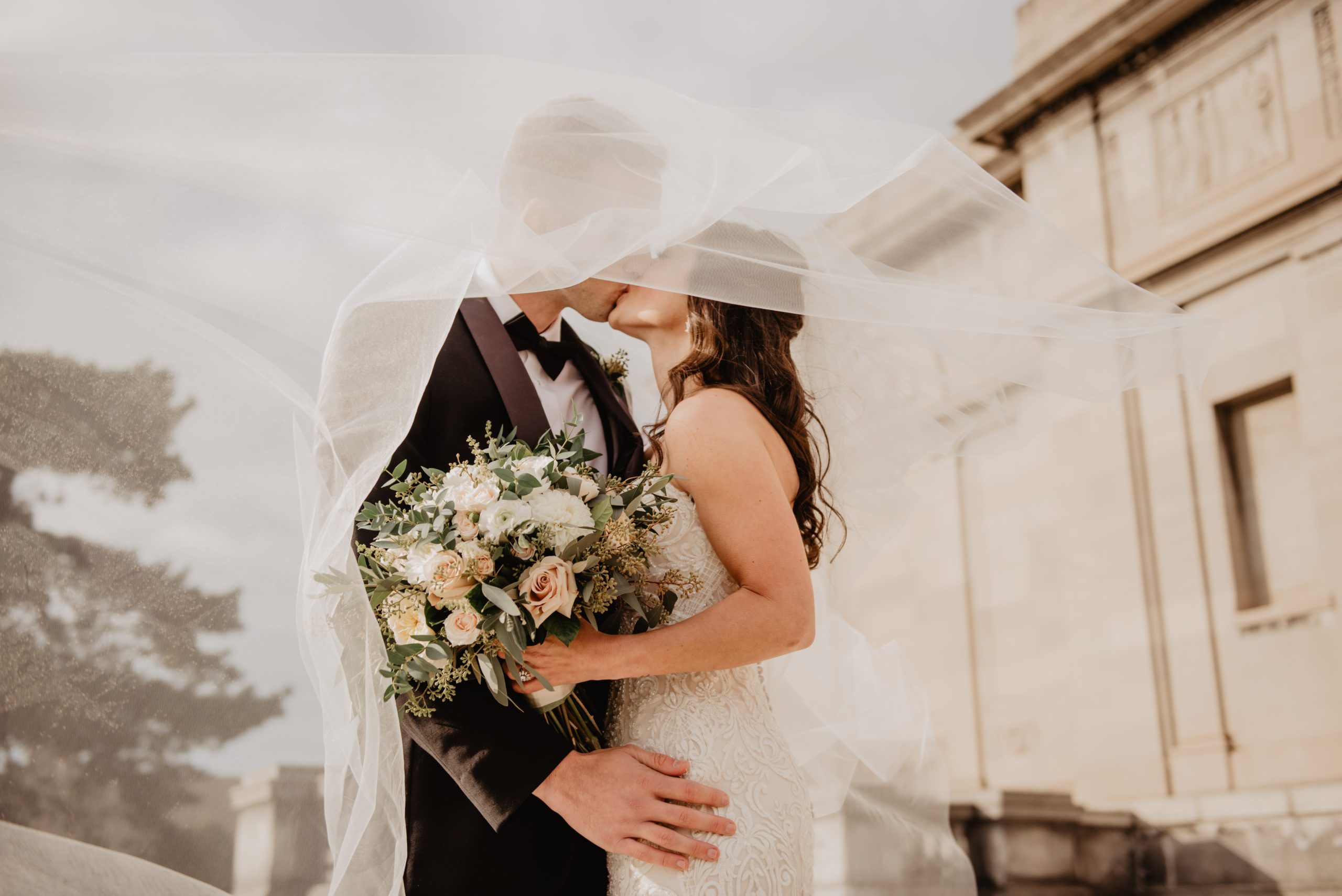8 am mimosas and brunch, 10 am hair and makeup, 12 pm lunch, what’s next?! Planning the wedding day timeline planning is a huge part of a successful wedding day. The goal is to have a seamless flow of events that will allow you and your guests to enjoy the day without any stress or delays. Let’s get into how to make your wedding day timeline flawless.
What is a Wedding Day Timeline?
A wedding day timeline is an agenda that outlines the events and activities that will take place during your wedding day. This includes the start and end time of each event, the order of events, and any other details that are relevant to your wedding day.
Why is a Wedding Day Timeline Important?
A wedding day timeline is important because it helps to keep everyone on track and organized on your wedding day. It helps to ensure that each event starts and ends on time and that everyone knows what to expect and when. A well-planned wedding day timeline will help to minimize stress and ensure that your wedding day runs smoothly.
How to Plan Your Wedding Day Timeline
Here are some steps to help you plan your wedding day timeline:
Determine the Length of Your Wedding Day
The first step in planning your wedding day timeline is to determine the length of your wedding day. This will help you to determine the number of events and activities that you will be able to include in your timeline. Some things to keep in mind are:
- Venue availability: When is your venue actually able to accommodate you? Make sure you are slotted in before making any final decisions.
- Reception and ceremony timing: Understanding the connection between your reception timing and ceremony timing is important to get a full understanding of the length of your wedding day.
- Other events during the day: Think about things like hair and makeup, golf outings, getting ready photos, miscellaneous errands, brunch, etc. These small events will add up!
- Travel time: How long will it take you to get from one place to another throughout the day? You’ll want to consider travel time for any hair appointments, golf outings, etc., and of course, also the ceremony and reception itself.
Determine the Start and End Time of Your Ceremony
The next step is to determine the start and end time of your ceremony. This will help you to plan all the other events accurately.
Consider the Time Needed for Photos
After determining the start and end time of your ceremony, you should consider the time needed for photos. The things you should consider are:
- Bridal party and family photos: If and when you will be taking pictures with the bridal party and close family. This can be time-consuming, with accommodating so many people for photos. It’s good to think about how this will fit in.
- First look photos: If you are doing a first look photoshoot with your spouse before the ceremony. This can be important to factor in before the ceremony to ensure you have enough time.
- Post-ceremony photos: Many people take newlywed photos after the ceremony takes place when the cocktail hour is happening. Consider factoring this into your timeline.
Plan Your Reception
The next step is to plan your reception. This will include determining the start and end time of your reception, the order of events, and any other details that are relevant to your wedding day.
Consider Travel Time
It is important to consider travel time when planning your wedding day timeline. This will help you to ensure that you have enough time to travel from one event to the next and that your guests have enough time to do the same. For example, if your ceremony and reception are at opposite ends of town, but you expect guests to get to the reception for a cocktail hour within minutes, you may have to reconsider.
Allow for Downtime
It is also important to allow for downtime in your wedding day timeline. This will help to ensure that you and your guests have enough time to relax and enjoy your wedding day. You don’t really want to be herding your bridal party from event to event all day long with no time to enjoy each other’s company in between. Maybe even allow your bridal party (or yourselves) to get in a moment of alone time to check your phone, answer any emails, check Instagram (you know, the important stuff), etc.

Review and Adjust Your Timeline
Finally, review and adjust your wedding day timeline as needed. Try to be as flexible as possible. Unexpected things happen, so you’ll want to have some buffer. This will help to ensure that your wedding day timeline is accurate and that everything runs flawlessly on your wedding day.
Example of a wedding timeline
We completely understand that planning a wedding timeline can be stressful. We’ve created a sample wedding timeline that may help get the brain juices flowing for you and help you create a perfect and unique timeline for your big day.
7:00 am– Wake up, have coffee, answer texts and calls, and get a little downtime in before the day begins
8:00 am – Optional breakfast for the bridal party at the hotel
8:30 am – Hair and makeup arrive at the bridal suite and start setting up
9:00 am – Bridesmaids are expected to arrive at the bridal suite for hair, makeup, and getting ready photos
10:00 am – Groomsmen meet on Golf Course for a quick golf session
11:30 am – Photographer and videographer arrive to get ready photos
1:00 pm – Lunch arrives at the hotel for the entire bridal party (Groomsmen expected to be back from golf at this time)
2:15 pm – Hair and makeup concludes until touch-ups before the reception
2:30 pm – First look photos
3:00 pm – Get on the party bus to go to the ceremony location
3:30 pm – Settle into the bridal suite, and enjoy some downtime while waiting for the ceremony to begin
4:00 pm – Guests are expected to arrive
4:30 pm – Ceremony begins
5:00 pm – Ceremony concludes, and congratulations!
5:15 pm – Hair and makeup touch-ups, if necessary
5:30 pm – Family and bridal party photos
6:30 pm – Reception begins (bridal party introductions, first dance, parent dances, toasts, dinner)
7:30 pm – Cutting of the cake
7:45 pm – The dance floor opens
8:15 pm – Bouquet and garter toss
10:15 pm – Last dance and farewell
10:30 pm – Reception concludes, and venue begins clean up
Frequently Asked Questions (FAQs) about wedding day timelines
Q: How long should my wedding day timeline be?
A: Typically, a wedding day timeline can range from 8 to 14 hours.
Q: What should be included in my wedding day timeline?
A: Your wedding day timeline should include the start and end time of each major event (ceremony, reception, etc.), the order of events, and any other relevant details specific to the event.
Q: How far in advance should I start planning my wedding day timeline?
A: It is recommended to start planning your wedding day timeline about 6 to 8 months before your wedding day. This will give you enough time to make any necessary adjustments and ensure that everything runs smoothly on your wedding day.
Q: Can I make changes to my wedding day timeline after I have created it?
A: Yes, you can make changes to your wedding day timeline after you have created it. However, it is important to make any changes as soon as possible to avoid any confusion or stress.
Q: Is it necessary to have a wedding day timeline?
A: Yes, it is necessary to have a wedding day timeline. A wedding day timeline helps to keep everyone on track and organized on your wedding day and ensures that each event starts and ends on time. Having a wedding day timeline will help you remain calm, cool, and collected amidst a very eventful day.
Final Thoughts
Wedding day timeline planning is an important aspect of a smooth wedding day without chaos. By following a few of the steps we listed above, you can ensure that your wedding day timeline is well-planned and that your wedding day runs perfectly. With careful consideration and attention to detail, you can create a wedding day timeline that will allow you and your guests to enjoy your wedding day without any stress or delays.

Nicole Sheehey is the Head of Legal Content at HelloPrenup, and an Illinois licensed attorney. She has a wealth of knowledge and experience when it comes to prenuptial agreements. Nicole has Juris Doctor from John Marshall Law School. She has a deep understanding of the legal and financial implications of prenuptial agreements, and enjoys writing and collaborating with other attorneys on the nuances of the law. Nicole is passionate about helping couples locate the information they need when it comes to prenuptial agreements. You can reach Nicole here: [email protected]

0 Comments